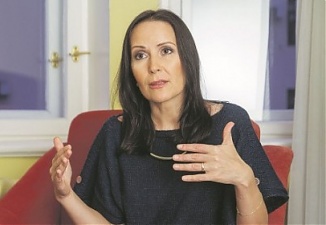Baltic States – CIS, Direct Speech, EU – Baltic States, Latvia, Legislation
International Internet Magazine. Baltic States news & analytics
Saturday, 27.12.2025, 15:19
Evolving migrant identities: on Russian-speaking migrants from Latvia in Europe
 Print version
Print version |
|---|
“I am a citizen of the UK too now,
and I feel myself as British as I can and as I want. Sometimes I even feel that
I was born here. I absolutely love this country. But in the meantime, all the
locals, of course, see me as a foreigner. ‘Oh, where are you from?’ they ask.
What’s the difference? I hate this question. It’s like—which family do you come
from? I like to say that my home is here. If I feel that I miss ‘the Russian
spirit,’ I can find it in many places here. Even more than I would need
(smiles)... On Old Street there are parties for Russians in London and
something like 2000 people show up. And there are also other places with a very
active social life of Russian speakers in London. But with Russians from
Russia— I actually do not have such close ties, because I myself have never
been to Russia, I’ve never lived there. I am a Baltic person, I feel most like
a Baltic person. This could be a more precise way for me to define my identity.
A Baltic person in London. And I speak Russian. But this pure Russian
soul—that’s a bit alien to me.” I interviewed Irina in 2015. I am a migration
scholar and my main interest is in qualitative methods—how people themselves
interpret their evolving migrant identities. Very little research exists
regarding Russian-speaking migrants from Latvia, however some new studies have
emerged during the past few years. Identifying people as ‘Russian speakers’ is
as a common convention among social scientists and more precise than the ethnic
category of ‘Russians’. Many of those who identify themselves as Russian
speakers and speak Russian as their home language come from ethnically mixed
families and form mixed families themselves. Throughout the 20th century there
have been large-scale changes in the proportions of various ethnic groups in
Latvia. The largest inflows of people whose primary language was Russian took
place during the 1960 and 1970s. According to the latest census data, the
ethnolinguistic minority of Russian-speakers makes up about one-third of the
Latvian population (36%). In the mid-1990s, about half of the Russian
population could speak Latvian, while something like nine-tenths of all
Latvians could speak Russian. Currently, the younger generation of Russian
speakers acquire Latvian quickly, and most finish school with a good command of
the language.
Naturalisation is another important aspect of evolving identities and provides some historical background of many Russian speakers in Latvia. Naturalisation was introduced in Latvia in 1995; rates peaked immediately after Latvia joined the EU in 2004, but then plummeted around 2007 and continue to decrease year by year. Over the past two decades, the overall population in Latvia, including Russian speakers, has been declining rapidly due to emigration and for low birth-rate. Although reasons for emigration are very similar for Latvian and Russian speakers, Russian-speaking emigrants tend to leave for good; in other words, they consider return migration to a lesser extent. Those who leave tend to use their Latvian citizenship instrumentally, as a vehicle that allows them to cross EU borders freely. According to longitudinal research done by various Latvian-based research institutions, obtaining a Latvian passport is not seen as an emotional statement of loyalty to the Latvian state, despite the fact that the younger generation of Russian-speakers are well integrated into Latvian society. The most realistic future scenario predicts the formation of more permanent emigrants outside of Latvia, where links to Latvia are personal and social (e.g. to relatives), as well as nostalgic (emotional ties to one’s place of birth), but ties to Latvia as a state are weaker.
Indeed, as my
research participant Irina said, “I am Baltic-RussianBrit with passports from
Latvia and the UK. I don’t see Latvia as some kind of sacred homeland. It is
the country where I was born, and so what? When I visit Latvia, people also
treat me as a foreigner. When I am shopping, or I go to a bar, or I try to buy
a bus ticket, people hesitate—how should they approach me? In Latvian, Russian,
English? In any language! I speak all of them, but somehow they see me
immediately as a foreigner, even without asking.”








 «The Baltic Course» Is Sold and Stays in Business!
«The Baltic Course» Is Sold and Stays in Business!

